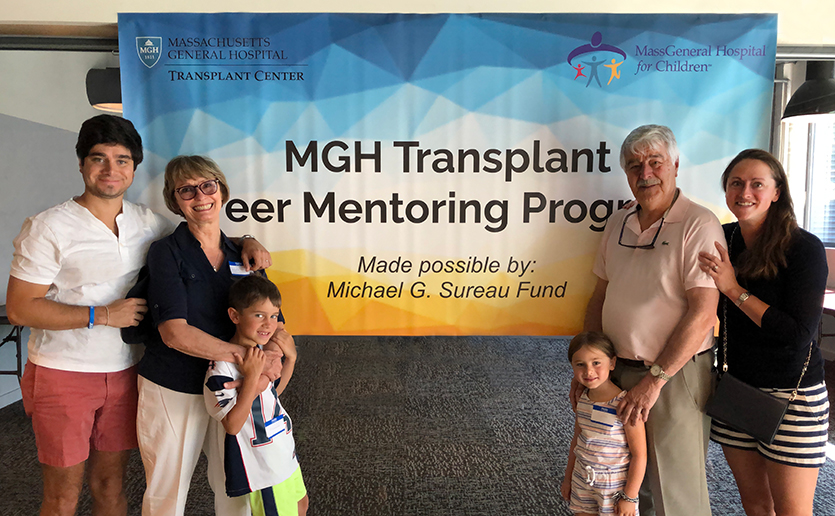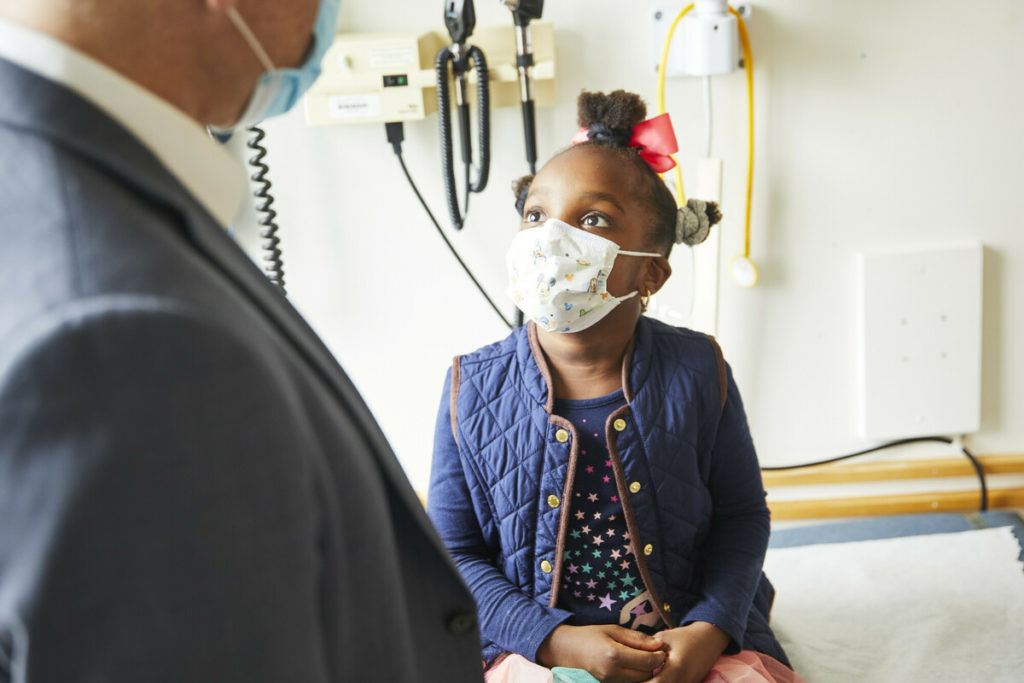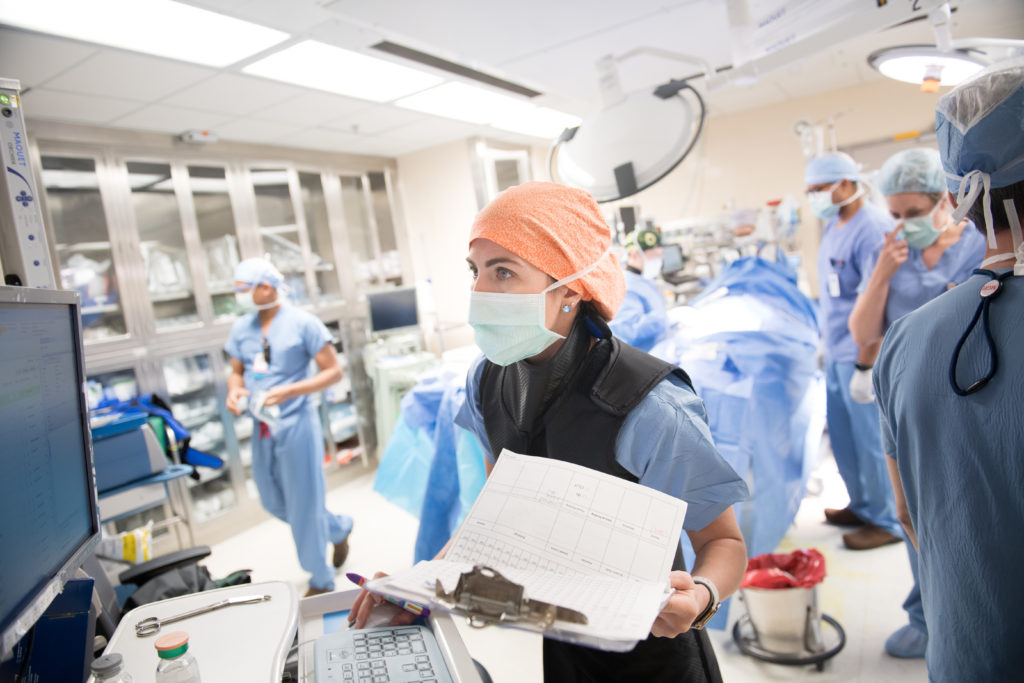 Carole and Jean-Claude Sureau remember feeling alone after their teenage son, Michael, had a kidney transplant in 1996 at Massachusetts General Hospital. Carole donated her kidney, and though the transplant was successful, she wished Michael had someone his own age to talk to who understood what he was going through.
Carole and Jean-Claude Sureau remember feeling alone after their teenage son, Michael, had a kidney transplant in 1996 at Massachusetts General Hospital. Carole donated her kidney, and though the transplant was successful, she wished Michael had someone his own age to talk to who understood what he was going through.
In September 2018, Michael died in a car accident. The Sureaus wanted to honor his memory with a gift to Mass General, to thank the hospital that had given him exceptional care and a healthy life.
Twenty years had passed, but they had not forgotten how they had yearned for a community of transplant families and wished Michael knew more kids like him.
Connecting Patients and Families
Mass General’s pediatric transplant team also recognized that transplant recipients in their teens and 20s might benefit from social support.
Transplants in teens are rare, with young patients being spread throughout New England, explains Heidi Yeh, MD, surgical director for pediatric transplant at MassGeneral Hospital for Children. A hospital survey of pediatric transplant recipients confirmed what the team suspected — pediatric transplant recipients cited a feeling of isolation and lack of peer support as the number one barrier to improving their care.
“Patients between the ages of 16 and 26 have the highest rate of organ rejection because it is during these years young adults are struggling to establish healthy behaviors and develop strategies to care for themselves.”
After meeting Dr. Yeh and learning of the team’s desire to create a peer support group, Carole and Jean-Claude Sureau made a donation to launch the MGH Transplant Peer Mentoring Program in 2019. The program aims to provide peer support for kidney and liver transplant recipients at Mass General, address feelings of loneliness and improve recipients’ health.
The Sureaus’ gift made the transplant mentoring program possible and will continue to support it. Dr. Yeh says the program may be the only one of its kind in the country.
A Delicate Time
So much of the success of post-transplant medical care depends on what happens after patients are discharged from the hospital, Dr. Yeh explains. She says patients between the ages of 16 and 26 have the highest rate of organ rejection because it is during these years young adults are struggling to establish healthy behaviors and develop strategies to care for themselves.
Their challenges are great, Dr. Yeh says. They must take complicated regimens of medications, with little room for missing a dose. This can be difficult with busy high school and college schedules. They also must deal with unwanted medication side effects, such as weight gain, at a time when their bodies are rapidly changing.
Barb Luby, a Mass General pediatric transplant social worker who helps run the mentoring program, says it’s difficult when her patients associate taking their medications with childhood. “Guess what’s the first thing to go?” she says. “The lifesaving medications that parents have been making them take.”
The consequences of not taking post-transplant medications can be serious, Dr. Yeh says. Patients might need hospitalization, long-term dialysis or could even die because waiting lists for organs are long.
The Role of Mentors
In 2019 at the MGH Transplant Peer Mentoring Program kickoff, funded by the Sureaus’ gift, mentors and mentees were introduced and attended a Red Sox game.

Then, they began communicating through phone calls and texts. The program also holds group gatherings, where participants use a software program installed on iPads, paid for by the gift. A conversation starter, it helps them explain their feelings with images.
Mentors are trained not to scold mentees on bad behaviors. And they do not report back to doctors, unless a mentee’s safety is at risk.
Ryan Delaney of Hanover, Massachusetts, had his first of two kidney transplants right after college, and sometimes struggled with taking medications. He had a second transplant in 2018, after getting married and having a daughter. Listening to other mentors helped him think about his own life and feel proud of everything he has gone through and survived.
Ryan wants to be a good listener to his mentee, Noah Madsen, 21, of Arlington, Mass. Noah’s kidney transplant in 2019, interrupted his studies at community college and shook his confidence. “It was difficult to explain how I felt at certain points in time,” Noah says, adding he did not have the group support when recovering from his transplant. “The group gives me an outlet and Ryan has lots of helpful advice.”
Michael’s Legacy
Carole and Jean-Claude want mentees to understand the positive aspects of transplants. “As much as Michael objected to taking daily medications and attending early-morning clinics, he did it, because he knew, at the end of it, there was a good life to live,” Carole says. “We miss him dearly, but we are grateful that he lived the life that he did, thanks to his transplant.”
To donate to the MGH Transplant Peer Mentoring, please contact us.



